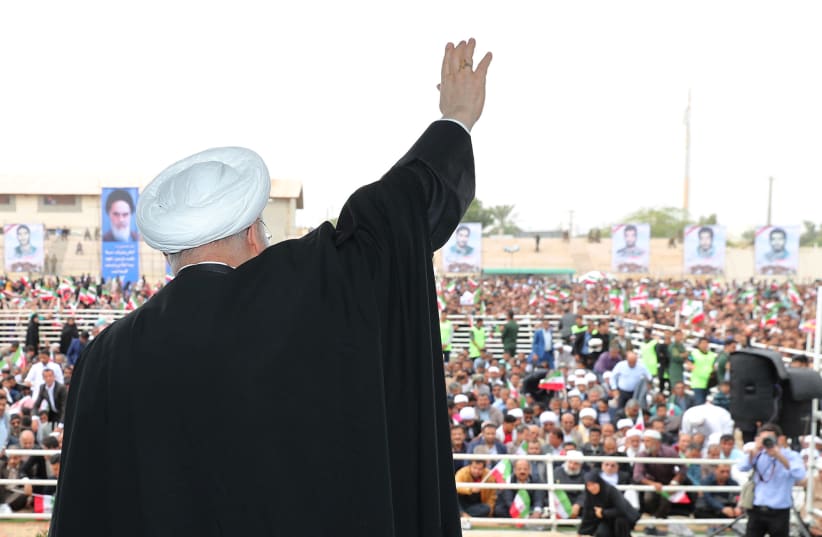The war left nearly two-million people dead and wounded on both sides of the fight, and it took years afterwards for the government to end this type of rationing.
Many are worried, including economic experts, that issuing the vouchers would bring more government interference into the already highly controlled country markets, Radio Farda reported.
People in Iran used to refer to the 1980's as the "coupon era," where long lines formed just to procure simple things such as eggs or butter.
"Some goods might be rationed and distributed through vouchers or coupons," said Islamic Republic Vice President Es’haq Jahangiri without much elaboration according to the Radio Farda report. "We might be forced to ration some goods and reintroduce vouchers for distributing them."
The state usually subsidizes many of these good through their annual oil sales and out of country exports, normally bringing in $60 billion a year for the Islamic Republic - additionally, the government issues cash handouts from to purchase these goods.
"They believe that in our current difficult situation rationing goods is not only irrational, but more open [competition] is necessary," Jahangiri noted, according to Radio Farda. "They also believe that, instead of rationing goods, the indirect government subsidies should be eliminated and directly paid to the people along with the cash monthly subsidies they currently receive."
However, Iranian President Hassan Rouhani apparently prepared for this by releasing "support packages" for needy Iranian families.
"Support packages of one-three million rials (approximately $23.75 to $71.25) are on their way; the exact amount will depend on the circumstances of each family, but they will be given out to targeted groups, shortly," Rouhani was quoted as saying, according to Radio Farda.
The numbers provided, however, did not account for recent exchange rate changes and will only help families provide themselves with food for a few days at the most.
President Donald Trump withdrew the US from a landmark nuclear deal with Iran and five other world powers in May, isolating the country from its closest European allies, putting the agreement on life support and setting up a new showdown with Tehran over its nuclear work -as well as bringing the rial (the currency used in Iran) to an all-time low.
Following remarks from the White House Diplomatic Room, Trump signed a presidential memorandum that immediately levies the "highest level of economic sanction" on Iran over its nuclear activity– a move that will put the US in violation of core provisions in the agreement, which traded global sanctions relief on Tehran in exchange for temporary caps and dismantling of their nuclear infrastructure.
Some products in Iran have become so scarce that people haven't had access to certain products for months, including diapers. As well as in recent months, lines out the door for meat and chicken - something the Islamic Republic Supreme Leader Ayatollah Ali Khamenei call a "hostile foreign countries' plot" against the Iranian people.Michael Wilner contributed to this report.
